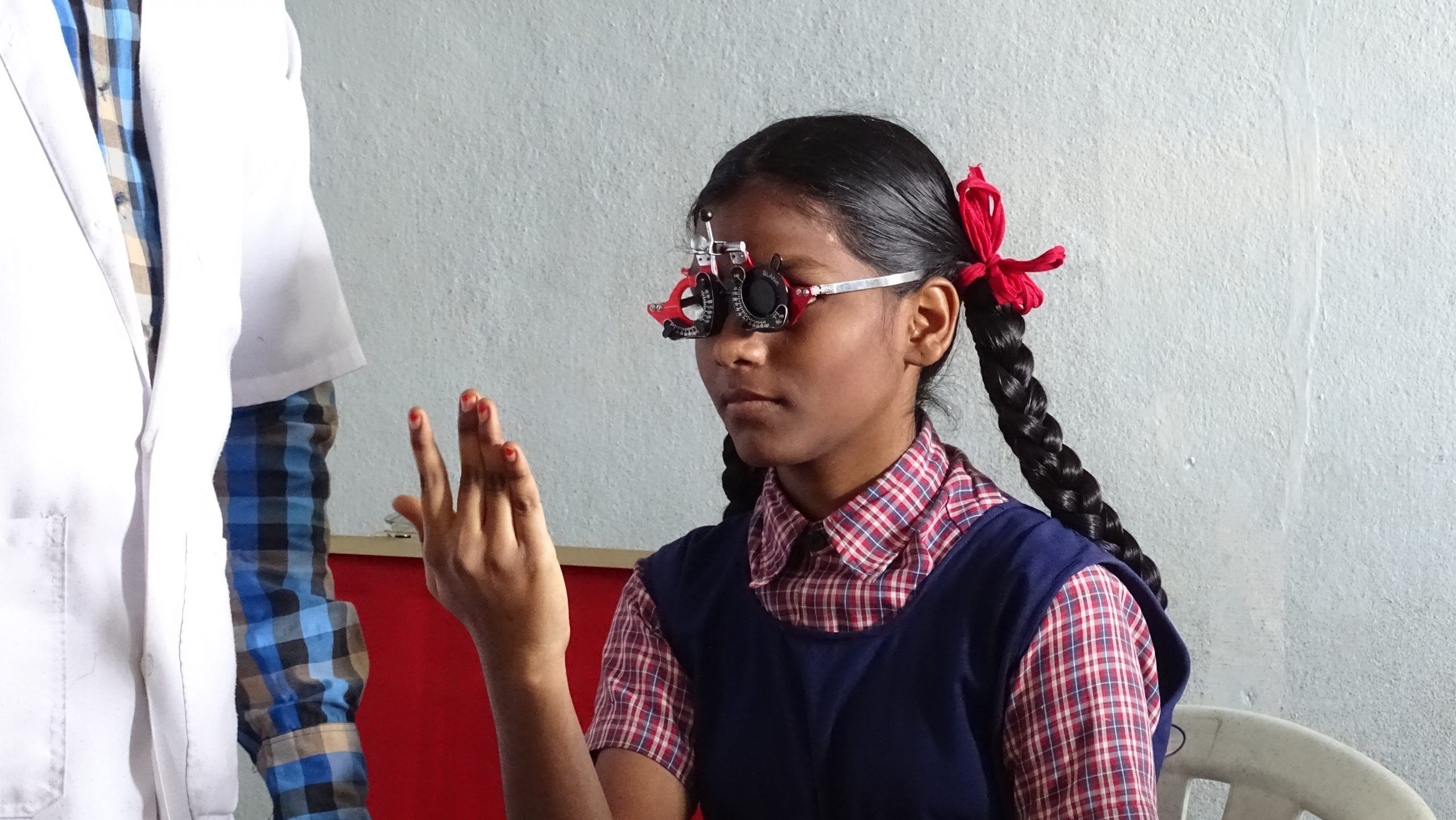Refractive Error Research Projects
Refractive error is a major cause of vision impairment, and there are an estimated nearly 1 billion people with uncorrected refractive errors worldwide. This includes myopia (nearsightedness), hyperopia (farsightedness), astigmatism, and presbyopia (age-related near vision loss). These conditions occur when the eye’s shape prevents light from focusing properly on the retina, causing blurred vision. Unaddressed refractive error impacts education, productivity, and quality of life, particularly in low- and middle-income countries (LMICs).
Uncorrected refractive errors hinder children’s learning and adults’ workplace efficiency, imposing economic and social burdens.
Effective strategies to tackle the challenge include:
- Screening: Ensuring that people with refractive errors are detected, for instance through community, workplace or school screening programmes.
- Improving Services: Expanding eye care services, for example through mobile clinics, outreach programmes and improved eye care facilities.
- Integrating Services: Integrating eye care into other primary health care services, so that people are treated when being seen for other conditions, and ensuring sustainability of the eye care service.
- Affordability: Ensuring that eyeglasses are low-cost enough, subsidised, or that people see the benefit in purchasing them.
- Awareness Campaigns: Educating the public about regular eye exams and early intervention.
Our research projects aim to improve access through providing evidence for interventions that align with these strategies:

The EARN Trial
This clinical trial will assess the impact of providing reading glasses to 20,000 older adults in Kenya and India on their income and quality of life.

Peek Vision Research
Peek Vision is a social enterprise that provides technological solutions for eyecare services in low and middle-income countries. Programmes powered by Peek have now enabled millions of people to access treatment.

SEHRA
The School Eye Health Rapid Assessment (SEHRA) allows the planning, implementing and monitoring of school eye health programmes.
Refractive Error Research Projects
Refractive error is a major cause of vision impairment, and there are an estimated nearly 1 billion people with uncorrected refractive errors worldwide. This includes myopia (nearsightedness), hyperopia (farsightedness), astigmatism, and presbyopia (age-related near vision loss). These conditions occur when the eye’s shape prevents light from focusing properly on the retina, causing blurred vision. Unaddressed refractive error impacts education, productivity, and quality of life, particularly in low- and middle-income countries (LMICs).
Uncorrected refractive errors hinder children’s learning and adults’ workplace efficiency, imposing economic and social burdens.
Effective strategies to tackle the challenge include:
Screening: Ensuring that people with refractive errors are detected, for instance through community, workplace or school screening programmes.
Improving Services: Expanding eye care services, for example through mobile clinics, outreach programmes and improved eye care facilities.
Integrating Services: Integrating eye care into other primary health care services, so that people are treated when being seen for other conditions, and ensuring sustainability of the eye care service.
Affordability: Ensuring that eyeglasses are low-cost enough, subsidised, or that people see the benefit in purchasing them.
Awareness Campaigns: Educating the public about regular eye exams and early intervention.
Our research projects aim to improve access through providing evidence for interventions that align with these strategies.
The EARN Trial
This clinical trial will assess the impact of providing reading glasses to 20,000 older adults in Kenya and India on their income and quality of life.
Peek Vision Research
Peek Vision is a social enterprise that provides technological solutions for eyecare services in low and middle-income countries. Programmes powered by Peek have now enabled millions of people to access treatment.
SEHRA
The School Eye Health Rapid Assessment (SEHRA) allows the planning, implementing and monitoring of school eye health programmes.
